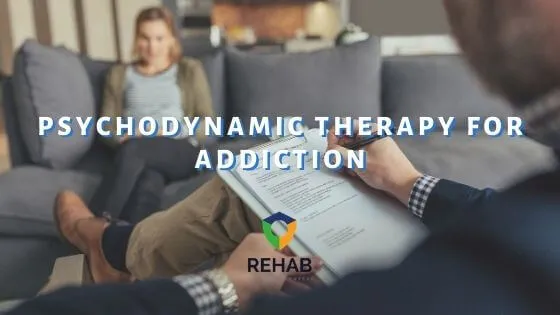Table of Contents
There are many different types of therapies used in drug and alcohol addiction treatment programs. Psychodynamic therapy for addiction involves helping people in recovery discover and process underlying thoughts and emotions that contribute to their substance abuse. Identifying underlying conditions is an imperative part of any drug and alcohol treatment program and in relapse prevention. Psychodynamic therapy allows patients to discover these underlying causes and conditions in exploratory and healthy ways.
This form of addiction therapy is meant to help patients better understand their underlying feelings, emotions, thoughts, and experiences. During therapy sessions, patients will work closely with their therapist to help bring unconscious thoughts and feelings into the forefront of the conscious mind. When used in addiction treatment programs, this technique is effective at helping patients explore their emotions and thoughts in healthy and effective ways.
Understanding Psychodynamic Therapy
Certain unpleasant feelings, such as shame, guilt, and fear can cause people to deny that they have a problem with drugs or alcohol. These feelings of denial can seep into every aspect of a person’s life, ultimately doing far more harm than good. As people get accustomed to denial, they may begin masking their emotions, neglecting their emotional health, and coping by means of alcohol or drugs rather than addressing the root issues.
Psychodynamic therapy sessions help people in recovery from addiction to connect their current behaviors to past events or situations that have happened to them. Rather than focusing on the patient-therapist relationship, the goal of psychodynamic therapy is to focus on the patient’s relationship with his or her external world. This type of therapy is most often used to treat depression, anxiety, and other mental health and psychological disorders, however, it is also effective in treating addiction and eating disorders.
During therapy sessions, patients are encouraged to speak freely about whatever comes to mind. The therapist will work to point out how past experiences or events have influenced the ways in which the patient thinks, feels, believes, and acts.
Since this type of therapy works to help people become more aware of their feelings, emotions, and surroundings, psychodynamic therapy can help improve behavior, relationships, and decision-making capabilities. Throughout the process, patients learn how to analyze and resolve issues through the means of deep exploration of earlier emotions and experiences.[1]
Using Psychodynamic Therapy in Addiction Treatment
In order to best serve patients, therapists will examine a variety of elements to identify and evaluate a variety of different things, including:
- How comfortable and self-aware a person is about his or her own feelings, thoughts, and behaviors
- Addressing feelings that the individual doesn’t understand or is unable to process
- How deep inside the negative effects of one’s past experiences are buried
- The psychological, physical, and emotional effects caused by masking feelings or drug abuse
By doing so, psychodynamic therapy can help people struggling with addiction to identify the underlying causes of their drug and alcohol use. This technique allows patients to address the root causes and conditions of their addiction so they can heal from the inside out.
Recovering individuals will identify, discuss, and process their feelings with their therapist in order to reduce the chances of relapse later in life. Addressing these emotions and acknowledging the underlying causes of substance abuse ultimately reduces the risk of returning to drug and alcohol use after completing treatment.
Psychodynamic therapy can benefit anyone struggling with anxiety, depression, panic disorders, or addiction. However, it is important to have a therapist that you trust and feel comfortable with. This approach is a very vulnerable one that is difficult to participate in if you don’t trust your therapist.
Psychodynamic Therapy Techniques
While psychodynamic therapy refers to one therapeutic method, there are various approaches to this technique. The exact approach used will vary from one client to the next depending on each person’s individual needs. A few of the most common psychodynamic therapy techniques that are used in addiction treatment include:[2]
- Free association – This is an approach that allows clients to lead the discussion after they have recalled a vivid memory of a traumatic event. This is a relaxed and non-structured approach that ensures the therapist is not leading the client. Instead, it allows clients to speak and process thoughts and emotions authentically. This helps build a trusting relationship between the patient and client while allowing clients to discuss the issues that are most important to them.
- Transference – Transference of feelings occurs when a person redirects their feelings from one thing or person to another. For example, if a person feels anxiety, sadness, or shame towards a particular person, they will be asked to project those feelings onto their therapist. This allows for a deeper exploration of feelings.
- Interpretation – Once a therapist has spent a considerable amount of time with a client, they will be able to discuss with their client what underlying conditions they may be suffering from. This can help patients learn to interpret their newly self-aware thoughts and how their actions may affect others.
Find a Drug and Alcohol Rehab Near You
Many drug and alcohol rehab programs offer psychodynamic therapy as part of their addiction treatment program. Using this approach, therapists return power over addiction back to their clients, allowing them to take control of their lives and stay sober. If you or a loved one are struggling with addiction, contact one of our dedicated treatment providers today to find a rehab center in your city.
References:
Get Help Today
Don’t go through the process of recovery alone. There are people who can help you with the struggle you’re facing. Get in touch with one today.


